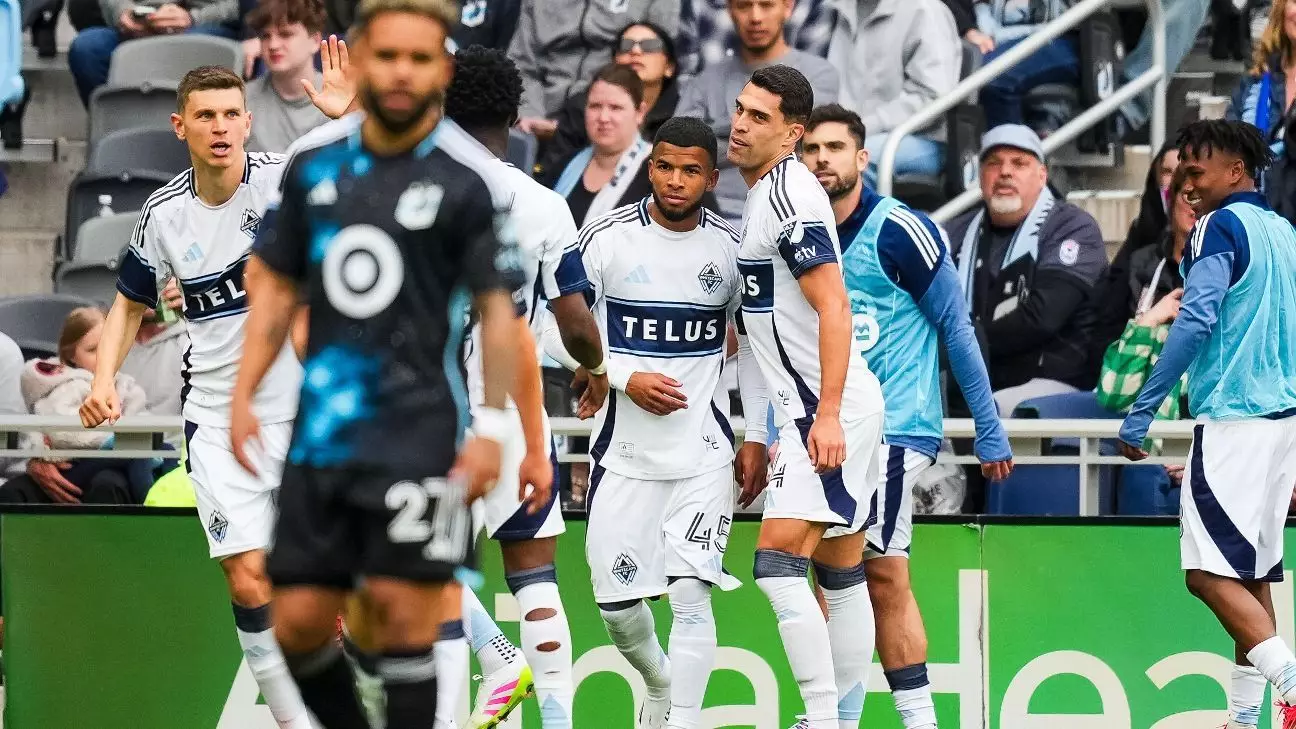Major League Soccer (MLS) recently found itself embroiled in a controversy that underscores the complexities of nudging a powerful sporting culture toward greater inclusivity and respect. The reported violation of the league’s Non-Discrimination Policy during a match between Minnesota United FC and the Vancouver Whitecaps demands acute attention, not just for the incident itself, but for what it represents in the broader scope of professional sports. The altercation, which surfaced in the dying minutes of the match, was brought to light when players Joseph Rosales and Emmanuel Sabbi exchanged heated words, an episode later intensified by the involvement of Sabbi’s teammate, Sebastian Berhalter. As referee Drew Fischer faced the daunting task of addressing a nebulous situation, his reluctance to impose sanctions hinted at the difficulties of substantiating claims of discrimination in the heat of the moment.
The League’s Response
In what could be regarded as a proactive approach, MLS announced an immediate review of the incident, embodying its commitment to addressing discrimination decisively. This swift action garnered mixed reactions from fans and analysts alike, highlighting the ongoing challenge of maintaining integrity in sports. Minnesota United’s statement further established their position, reinforcing the notion that both the club and the league must tackle such issues with utmost seriousness. Importantly, they expressed unequivocal condemnation of any behavior that strays into the realm of harassment or discrimination. This dual response serves as a reminder of the growing awareness and sensitivity surrounding issues of equality in sports, as well as the immense responsibility that comes with being part of a professional league.
Historical Context and Continued Challenges
This incident is not isolated; it echoes past occurrences within the league where players have faced disciplinary action for similar violations. Notable suspensions, such as those given to Philadelphia Union defender Kai Wagner and former New York Red Bulls forward Dante Vanzeir, illustrate a troubling pattern that MLS has grappled with over the years. This historical context is pivotal; while recent developments indicate a concerted effort to combat discriminatory behavior, they also reveal how deeply embedded such issues can be in the sporting environment. The path to progress is fraught with obstacles, and every incident serves as a critical indicator of the systemic changes required to foster an inclusive atmosphere.
The Role of Education and Advocacy
In a bid to combat these ongoing challenges, MLS, alongside the advocacy group Black Players For Change, has initiated a comprehensive training program tailored for players and coaching staff. This initiative aims to elevate awareness regarding unacceptable verbal expressions and the detrimental impact they can have on individuals and the community as a whole. By mandating participation across all levels, the league signals its resolve to dismantle the ignorance that often perpetuates discrimination. Yet, the effectiveness of such training will inevitably depend on genuine engagement from participants, a challenge that presents its own set of complications. The effectiveness of educational programs hinges not only on the content—the what and how—but also on the culture that supports their implementation and acceptance.
The Bigger Picture
As the landscape of professional sports evolves, the role of leagues like MLS in promoting social justice becomes increasingly vital. They are not just venues for athletic prowess; they have the power to influence public discourse and drive cultural change. The image of soccer is intertwined with societal standards and expectations, and the way leagues handle incidents of discrimination can profoundly shape public perception. A relentless commitment to fighting discrimination is not merely an obligation but an opportunity to lead by example. Intolerance cannot be stamped out overnight, but acknowledging its existence and taking concrete steps toward change is essential in cultivating an environment where sportsmanship thrives.
The New MLS paradigm represents a critical juncture, a moment where actions speak louder than words. This incident sheds light on the hurdles that remain in the intersection of sports and social justice but also shines a light on the ongoing evolution within the league. The conversation surrounding discrimination is far from over, and the way that MLS navigates these treacherous waters will not only define its legacy but will resonate beyond the pitch, influencing the societal norms we aspire to uphold.

